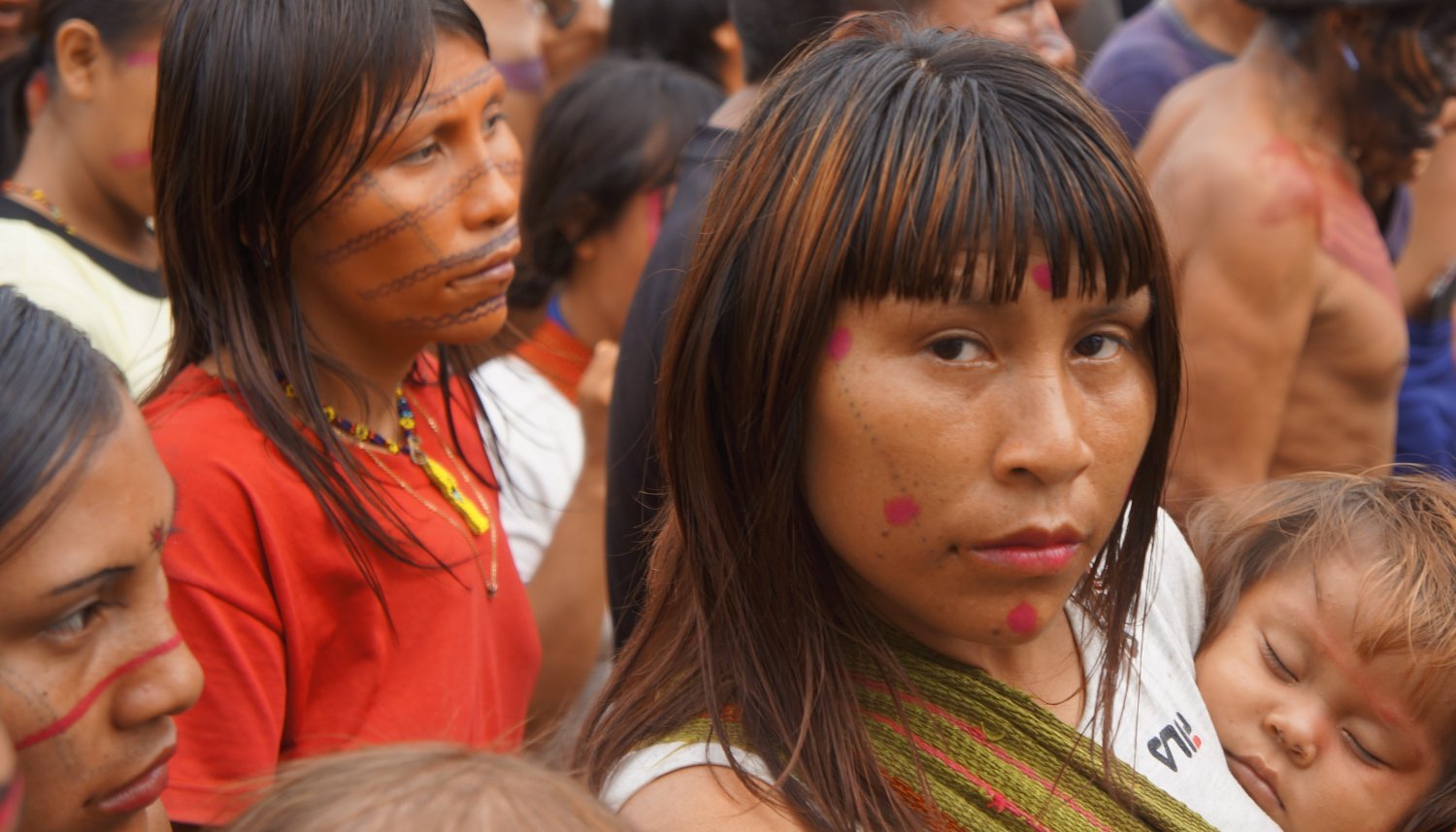Ostatni bastion Yanomami - "Avatar" w Brazylii
Ostatni bastion Yanomami - "Avatar" w Brazylii
Our users created 1 289 987 fundraisers and raised PLN 1,522,277,158
What will you fundraise for today?
Updates3
-
Read more
Zapraszam serdecznie wszystkich chętnych zrzutkowiczów na niedzielny trening łuczniczy na warszawskie Bielany, ich skraj dokładnie. W otulinie Kampinoskiego Parku Narodowego mam tor łuczniczy, na którym regularnie ćwiczymy łucznictwo :)
Moje kółko 🎯🏆🏹 zrzesza amatorów łucznictwa bojowego, tradycyjnego i intuicyjnego, ale jest przestrzeń dla sportowców.
🗓🏹Nasze treningi odbywają się cyklicznie w każdą niedzielę od 11:00 do 13:00 (z wyjątkiem świąt)
🗝🔓⌚Tor łuczniczy jest otwarty od poniedziałku do piątku od 18:00 do 20:00 (z wyjątkiem świąt)
🚩
Strzelnica położona na terenie prywatnym w otulinie Kampinoskieo Parku Narodowego. Łatwy dojazd autobusami linii 110 i 250 z Młocin do przystanku "Trenów Las 01"
Nasz parking jest tutaj
https://goo.gl/maps/1Qm99d2Qpzsf8vjE8
🚩
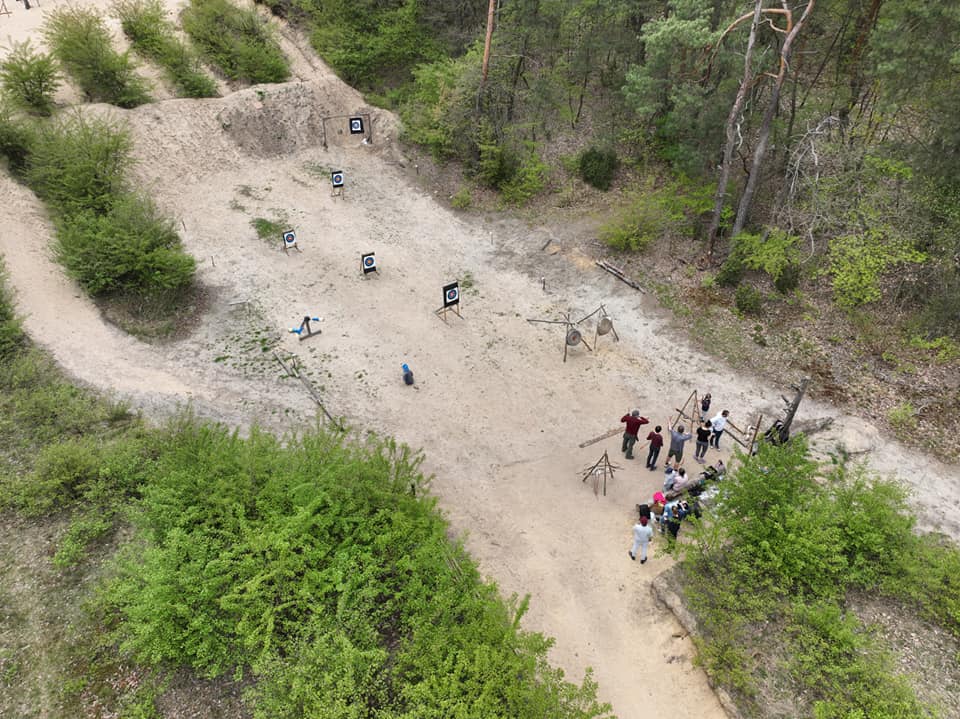 Jeśli ktoś z Was chce odebrać nagrodę lub po prostu przyjść wypuścić kilka strzał do tarczy to zapraszam serdecznie do końca czerwca 2022 :)
Jeśli ktoś z Was chce odebrać nagrodę lub po prostu przyjść wypuścić kilka strzał do tarczy to zapraszam serdecznie do końca czerwca 2022 :) Pozdrawiam Was serdecznie
No comments yet, be first to comment!

Add updates and keep supporters informed about the progress of the campaign.
This will increase the credibility of your fundraiser and donor engagement.
Description
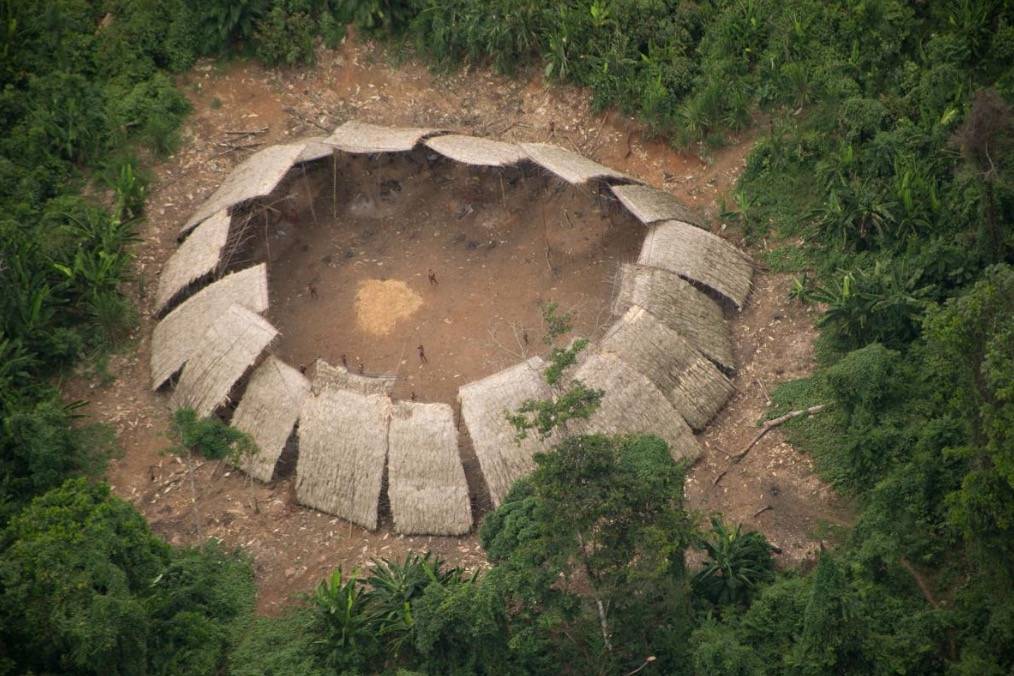
Wioska Moxihatetema Fot. GUILHERME GNIPPER TREVISAN/HUTUKARA
Dzicy Yanomami
Yanomami to jedna z największych częściowo odizolowanych rdzennych ludności w Ameryce Płd. Żyją w północnej Brazylii i południowej Wenezueli.
Ich przodkowie migrowali tu około 25 000 lat temu (publikacja 22 lipca 2020. w „Nature” ). Dziś całkowita populacja tego wyjątkowego ludu wynosi od 50 tys do 38 tys osób i wciąż maleje. W ich języku nie ma słów "wczoraj" i "jutro", jest to język izolowany, nie spokrewniony z żadną grupą językową. Żyją w chatach skupionych wokół okrągłego placu spotkań, zabaw, rytuaów, a każda rodzina ma swój dach. Żyją z dżungli stosując ponad półtysiąca gatunków roślin do konsumpcji i tworzenia, a ich świat nie zmieniał się przez tysiąclecia, aż przyszli biali.
Historia eksterminacji
Już w 1910 r odnotowano nowożytne kontakty z Yanomami, ale pierwszy "mocny" i ciągły kontakt z obcokrajowcami nastąpił w 1940 r., kiedy rząd brazylii wytyczył granicę z Wenezuelą. Niestety zaraz po tym powołano Państwową Służbę Ochrony Ludności Rdzennej i misjonarze ruszyli pomagać. W tych punktach szukać można było nie tyle pomocy, co źródeł grypy i odry, które zdziesiątkowały populację Yanomami
Kolejnym gwoździem do wieka trumny była zbudowana w latach 70tych droga przez amazonię, przecinającą ją od południa na północ ku Wenezueli. Ciężki sprzęt jak w Avatarze przeciął las i społeczność Opiktheri. Znów kontakt z nami wybił kolejne tysiące ludzi, całe małe społeczności. Farmerzy i kolonizatorzy cały czas powiększają swoje areały kosztem lasu deszczowego i indigenas.
Lata 80 przyniosły Yanomami śmierć od kul gdy niemal 40 tys poszukiwaczy złota zaczęło niszczyć wszystko, dokonując nierzadko ludobójstwa. W ciągu siedmiu lat zginęło 20% i tak zdziesiątkowanej populacji! Pod koniec lat osiemdziesiątych powołano pierwsze sensowne organizacje pomocowe, zrzeszające indian.
Na początku lat 90 po wyznaczeniu parku narodowego Yanomami wypędzono poszukiwaczy złota. Mimo to już 93 roku grupa poszukiwaczy złota weszła do wioski i zamordowała 16 osób włączając dziecko. Zostali uznani winnymi ludobójstwa.
To się dzieje nadal
Autostrada znacznie ułatwia kolonizację dziewiczych przez tysiące lat terenów. Na mapach googla widać jak ludzie wcięli się na miliony hektarów, zamieniając dżunglę w pola, Do tego dzicy poszukiwacze złota.Minęło trzydzieści kolejnych lat, mamy 2022 rok, a dramaty tam trwają dalej. Ocalałe grupki Yanomami spłynęły ze swoich rzek do miast i punktów misyjnych, żeby być traktowanymi jak normali ludzie, jak obywatele Brazylii, bo truje się ich i strzela jak do zwierząt. Tu ginie (nie)cywilizacja, bo oni nie pozostawią po sobie żadnych trwałych śladów jak budynki, czy rzeźby lub zapisana poezja. Zginą razem z ich dżunglą.
Rdzennej dżungli tropikalnej zostało już ok 18 mln hektarów, z czego w Wenezueli 8,2 mln ha w Brazylii 9,6 mln ha. To bezwzględnie mało, choć liczby wydają się ogromne. Tam we względnej izolacji żyje jeszcze od 38 000 do 50 000 Yanomami, potomkowie pierwszych ludzi zamieszkujących amerykę południową. Ostatni bastion (nie)cywilizacji na ziemi i lud który wymiera przez chciwość bandytów i opieszałość rządu. W XXI wieku wciąż są dziesiątkowani przez choroby i karabiny.
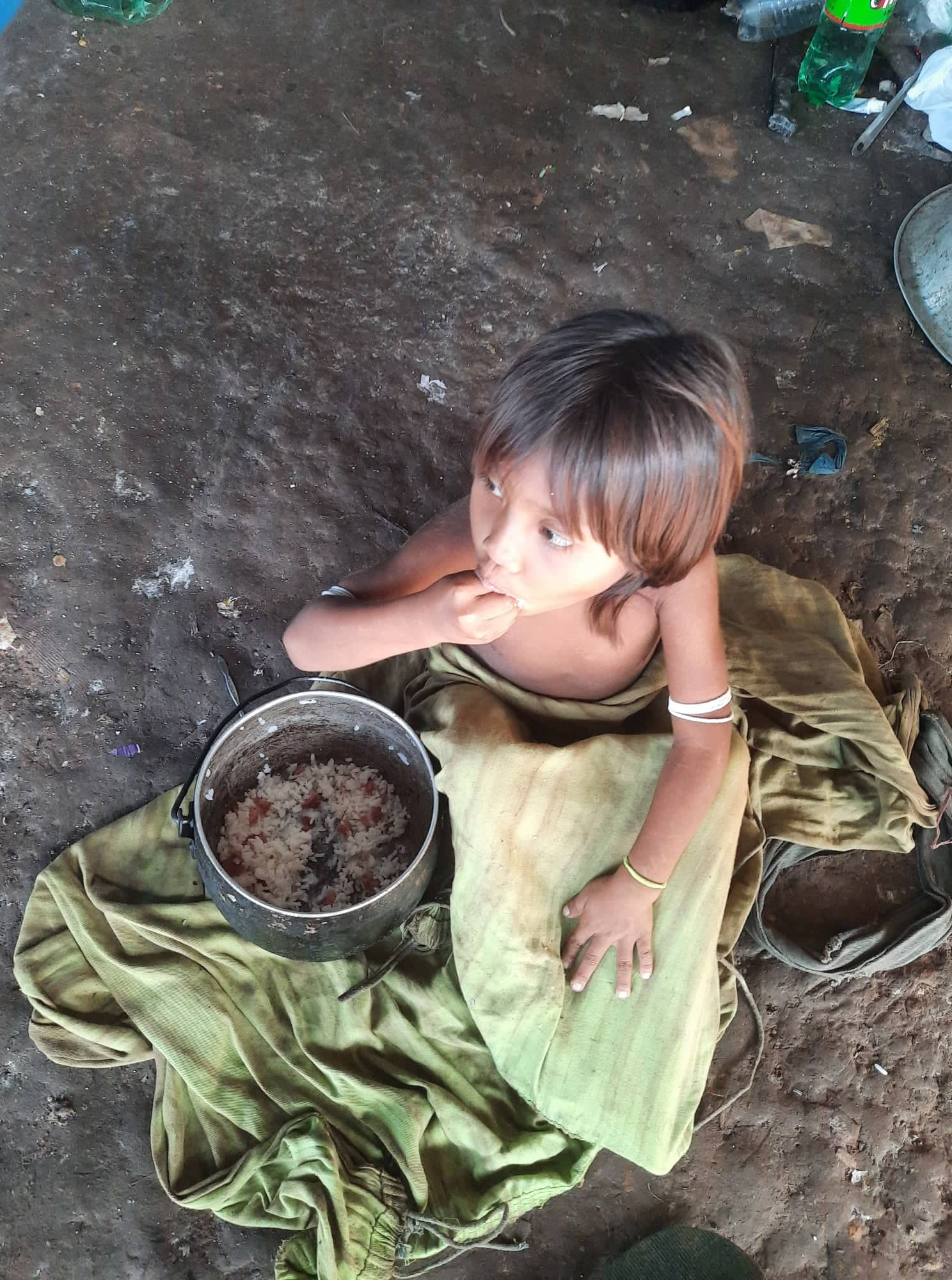
Teraz doszedł jeszcze głód
Zajrzał w oczy oczekującym na powrót do dżungli, uwięzionych przy ośrodku FUNAI (fundacja wspierająca rdzennych indian) rodzinom. W wyniku coraz częstszych kontaktów i interakcji z osobami z zewnątrz oraz widząc, że muszą stawić czoła poważnym atakom na swoje prawa, Yanomami utworzyli organizacje regionalne, które mają bronić ich praw.
I tak oto grupa 1300 rdzennych indian, trafiła do Barcelos domagając się swoich praw, ale trafili w pułapkę, bo rząd absolutnie nie zamierza im pomagać, władzom na rękę, żeby ten lud mieszkający na złocie i ropie wymarł. Obecnie głodują koczując wokół budynku organizacji pomocowej FUNAI, bez perspektyw na powrót do domu. Przyczyna: "brak środków na paliwo"

Fot. Marcin Bogus
Można ich odesłać do domów, a przynajmniej tych dwustu, którzy mają wyrobione dokumenty. Tak, dokumenty do dżungli, żeby mieć równe prawa w sądzie i prawo do opieki medycznej, bo z koronawirusem, albo kolejną nieznaną chorobą sobie nie poradzą, (choćby szamanem)
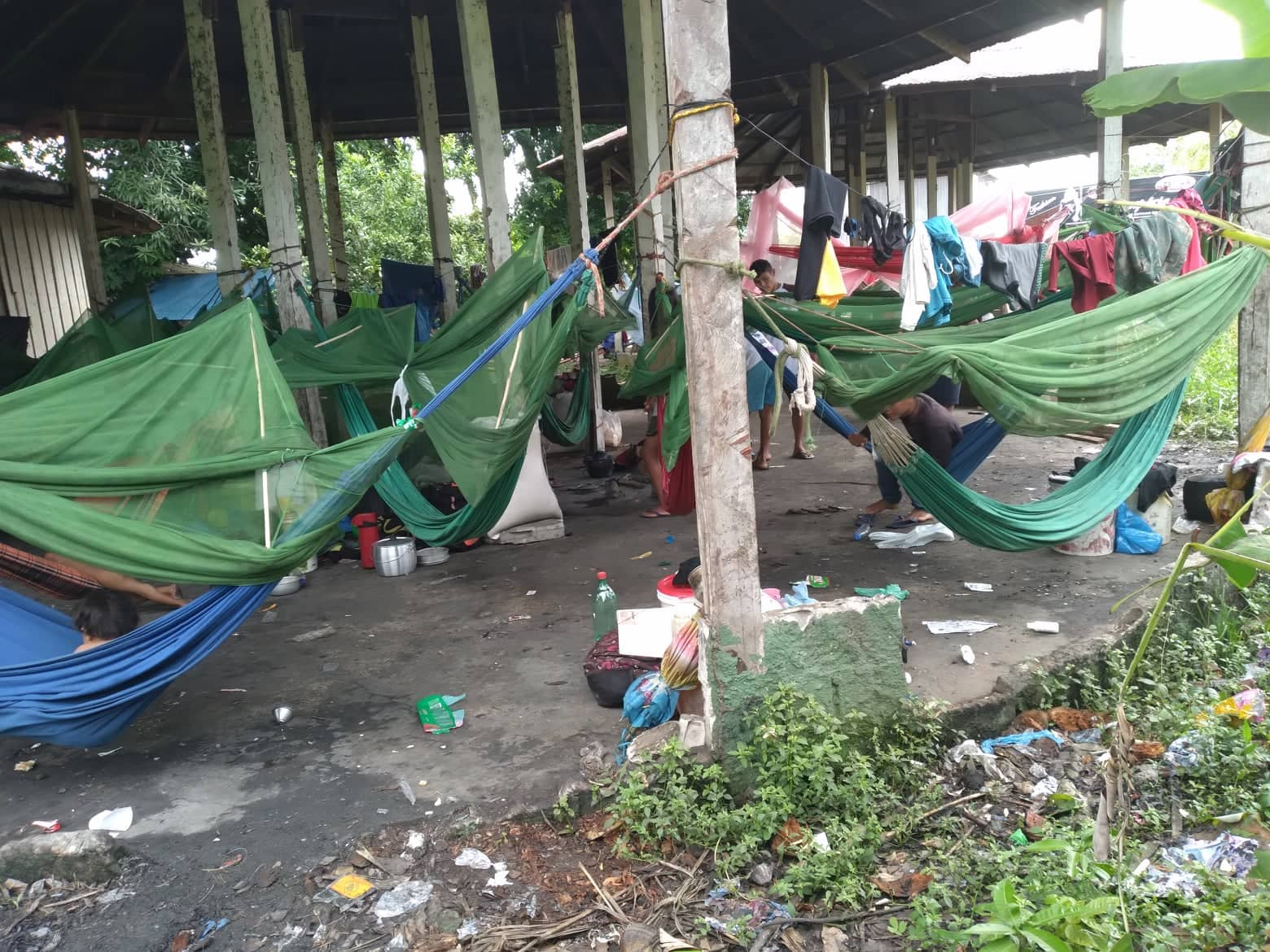 Wszystkich nie ocalimy
Wszystkich nie ocalimy
Gdyby udało nam się odesłać chociaż jedną wioskę z kilkunastu, nie dawaliśmy ryby, tylko wędkę. W lesie mają większe szanse przetrwać godnie. Żeby dostarczyć do domów wszystkich potrzeba ponad siedemdziesiąt tysięcy złotych, na samo paliwo. My możemy pomóc garstce tej "najpewniejszej", tej która wróci do swojej normalnej egzystencji zbierając jedną siódmą tej kwoty.
Swojej cywilizacji nie ocalimy, ale możemy uratować ostatnią istniejąca na ziemi (nie)cywilizację.
English below:
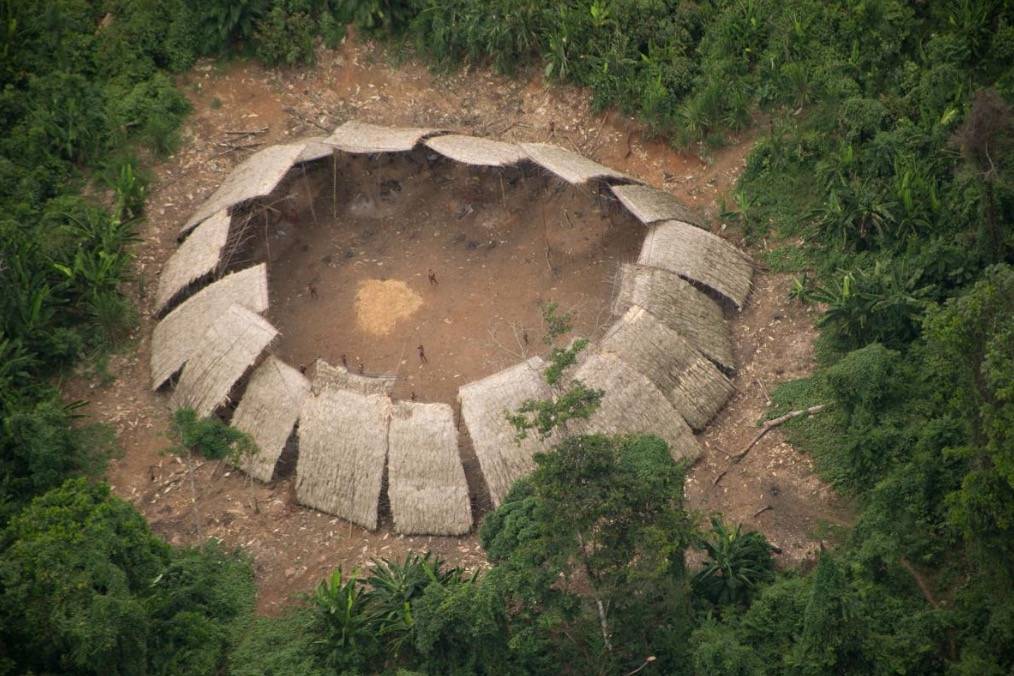 oxihatetema village Fot. GUILHERME GNIPPER TREVISAN / HUTUKARA
oxihatetema village Fot. GUILHERME GNIPPER TREVISAN / HUTUKARA
Wild Yanomami
Yanomami is one of the largest partially isolated indigenous peoples in South America. They live in northern Brazil and southern Venezuela.
Their ancestors migrated here about 25,000 years ago (published July 22, 2020 in Nature). Today, the total population of this unique people ranges from 50,000 to 38,000 and is still declining. There are no words "yesterday" and "tomorrow" in their language, it is an isolated language, not related to any language group. They live in huts centered around a round playground, games and rituals, and each family has its own roof. They live in the jungle by using over half a thousand species of plants to consume and create, and their world did not change over the millennia until the whites came.
History of extermination
As early as 1910, early modern contacts with the Yanomami were noted, but the first "strong" and continuous contact with foreigners came in 1940, when the Brazilian government marked the border with Venezuela. Unfortunately, the State Service for the Protection of Indigenous Peoples was established immediately after that and the missionaries started to help. At these points, one looked not so much for help as for the sources of influenza and measles, which decimated the Yanomami population.
Another nail for the lid of the coffin was the road built in the 1970s through the Amazon, crossing it from south to north towards Venezuela. Heavy equipment like in Avatar cut through the forest and the Opiktheri community. Again, contact with us killed thousands more people, whole small communities. Farmers and colonizers are constantly increasing their acreage at the expense of the rainforest and indigenas.
The 1980s brought Yanomami death from bullets when nearly 40,000 gold prospectors began destroying everything, often committing genocide. In seven years, 20% of the already decimated population died! At the end of the 1980s, the first sensible aid organizations, associating Indians, were established.
In the early 1990s, after the designation of the Yanomami National Park, the gold diggers were driven out. Nevertheless, in 93 AD a group of gold prospectors entered the village and murdered 16 people, including a child. They were found guilty of genocide.
It is still happening
The highway greatly facilitates the colonization of areas unspoiled for thousands of years. On google maps you can see how people cut into millions of hectares, turning the jungle into fields, and wild gold prospectors. Thirty consecutive years have passed, it's 2022, and the drama continues there. The surviving groups of Yanomami flowed from their rivers to cities and mission points to be treated like normal people, like Brazilian citizens, because they are poisoned and shot like animals. This is where (un) civilization dies, because they will not leave any permanent traces like buildings, sculptures or written poetry. They will die with their jungle.
About 18 million hectares are left of the indigenous tropical jungle, of which in Venezuela 8.2 million hectares in Brazil 9.6 million hectares. This is absolutely not enough, although the numbers seem huge. There, 38,000 to 50,000 Yanomami, descendants of the first people in South America, still live in relative isolation. The last bastion of (un) civilization on earth and a people dying out by bandit greed and government sluggishness. In the 21st century, they are still decimated by disease and rifles.
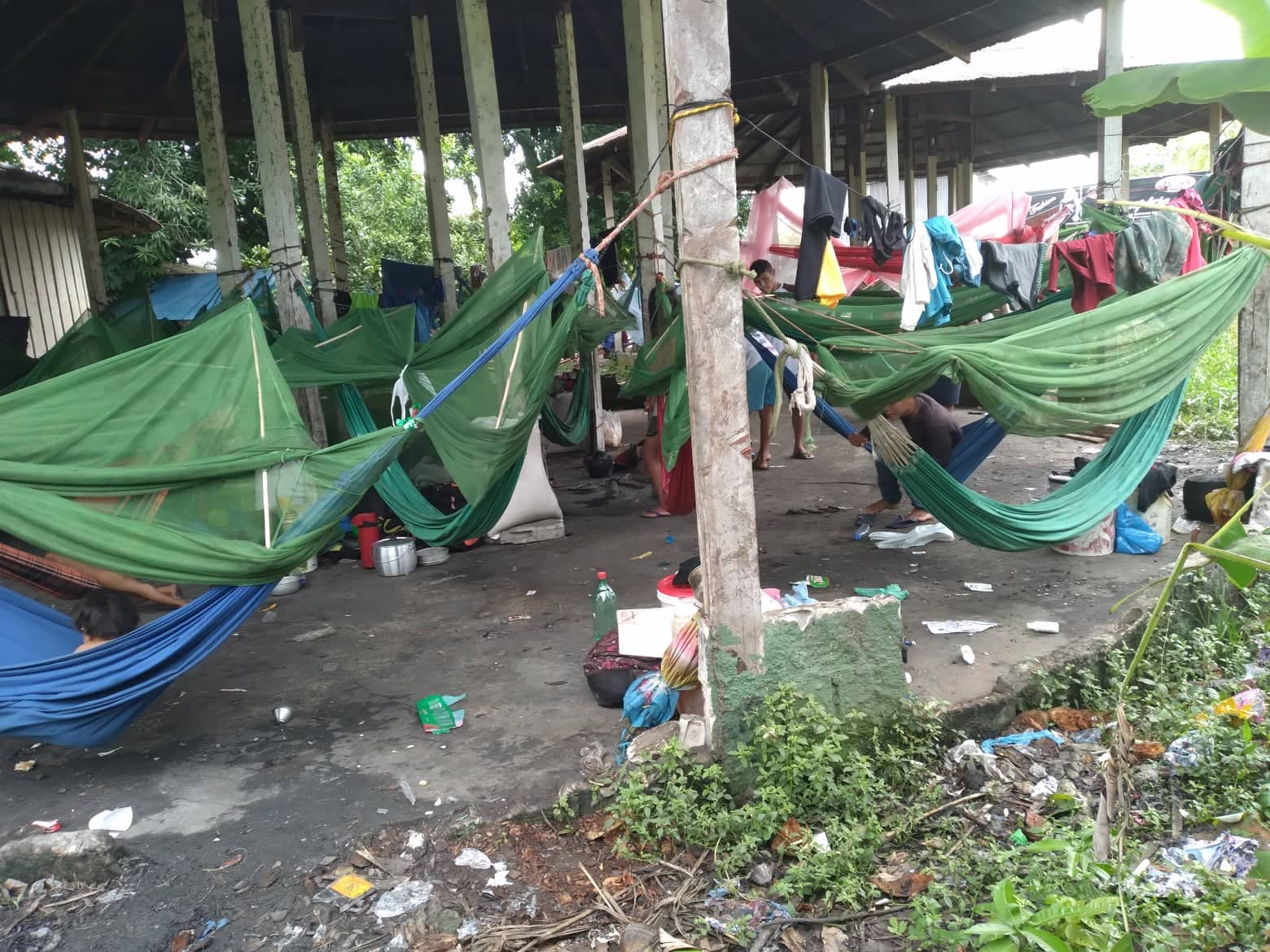
Now there is also hunger
He looked into the eyes of families trapped at FUNAI (Native Indian Support Foundation) to return to the jungle. As a result of increasing contacts and interactions with outsiders, and seeing that they have to face serious attacks on their rights, the Yanomami have created regional organizations to defend their rights.
And so a group of 1,300 indigenous Indians ended up in Barcelos demanding their rights, but they fell into a trap because the government is absolutely not going to help them, the authorities at hand, that this people living on gold and oil will die out. They are currently starving, wandering around the building of the FUNAI aid organization, with no prospect of returning home. Cause: "lack of funds for fuel"
 Photo Marcin Bogus
Photo Marcin Bogus
You can send them back to their homes, or at least two hundred who have their documents in place. Yes, documents to the jungle to have equal rights in court and the right to medical care, because they will not be able to cope with the coronavirus or another unknown disease (even a shaman)
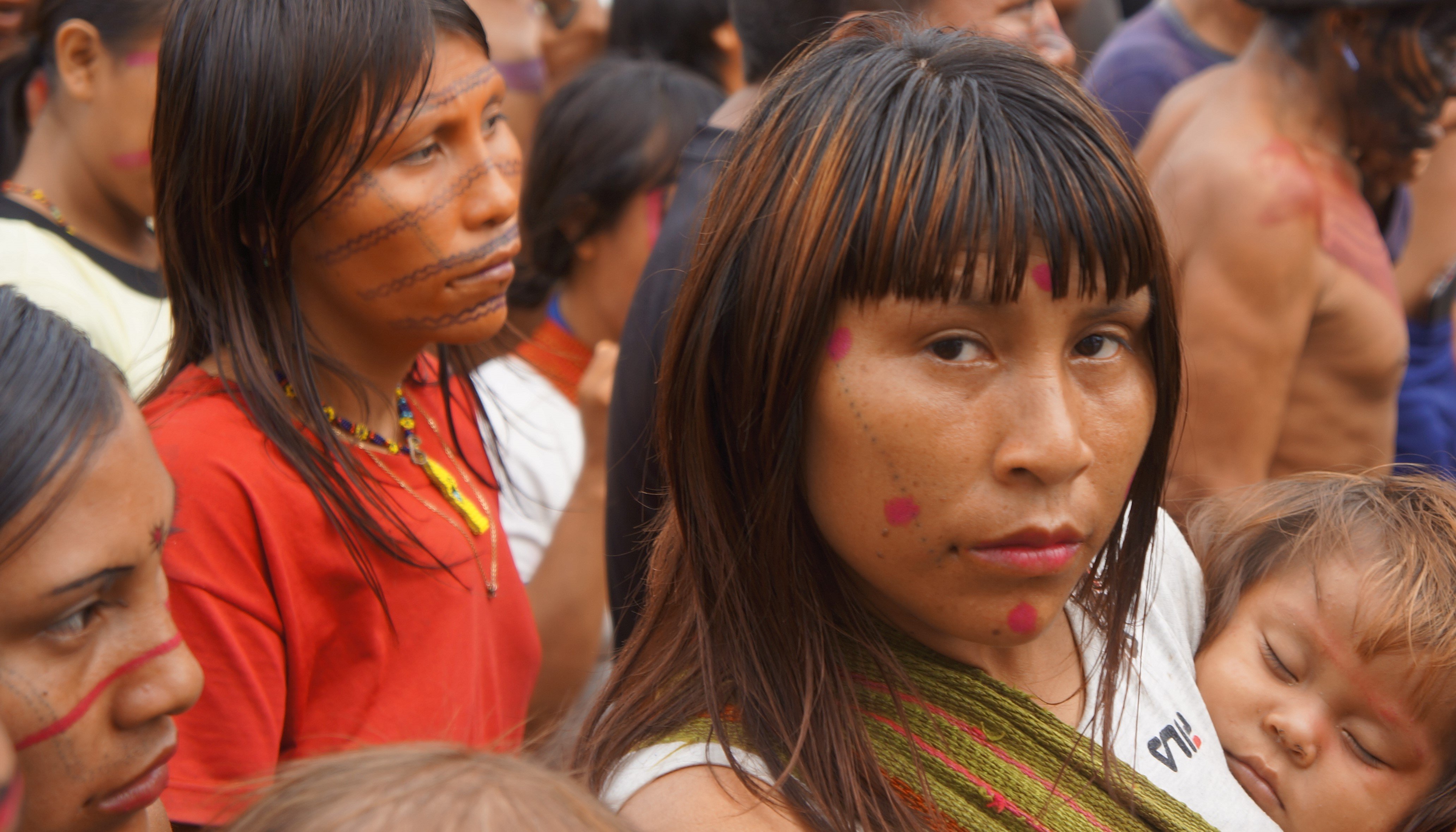 We won't save them all
We won't save them all
If we were able to send back at least one village out of a dozen, we would not give a fish, only a fishing rod. In the forest, they have a better chance of surviving with dignity. To deliver to everyone's homes we need over seventy thousand zlotys just for fuel. We can help a handful of the "sure" ones, who will return to their normal existence by collecting one-seventh of this amount.
We will not save our civilization, but we can save the last existing (non) civilization on earth.

There is no description yet.
